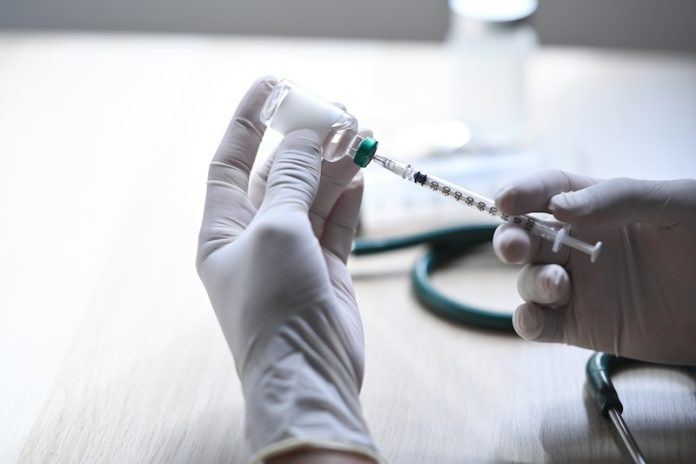
In the United States, nearly two in five adults grapple with high cholesterol, a condition that significantly heightens the risk of heart disease and stroke—leading causes of death nationwide.
Globally, cardiovascular diseases are responsible for almost 18 million deaths each year.
Amidst these alarming statistics, researchers at The University of New Mexico School of Medicine are pioneering a breakthrough that could revolutionize the fight against high cholesterol.
The development of a new vaccine targeting “bad” LDL cholesterol offers a ray of hope. This vaccine, conceptualized to be more affordable and widely accessible, could change the landscape of cholesterol management, particularly in resource-limited settings.
Bryce Chackerian, Ph.D., a key figure in this research, emphasizes the need for cost-effective alternatives to current therapies.
The vaccine, reported in npj Vaccines, demonstrates an effectiveness nearly on par with the pricier PCSK9 inhibitors. These drugs, though effective, pose financial challenges and require complex administration processes.
Cardiologist Abinash Achrekar, M.D., MPH, who is both a practitioner and a patient of high cholesterol, sheds light on the personal and professional impacts of this condition. He recounts his experiences with various treatments, including statins and PCSK9 monoclonal shots.
The latter, targeting a liver-produced molecule that regulates LDL cholesterol metabolism, significantly lowers bad cholesterol but comes with high costs and administrative burdens.
Chackerian’s team sought to create a more accessible treatment. Utilizing a vaccine platform technology developed at UNM, they crafted a vaccine that specifically targets PCSK9.
This innovative approach uses a harmless virus shell, adorned with PCSK9 protein fragments, to elicit a strong immune response against the cholesterol-controlling protein.
The results in animal models are promising, showing up to a 30% reduction in cholesterol levels, which correlates with a decreased risk of heart disease.
Having undergone a decade of testing in mice and monkeys, the next hurdle is securing funding for vaccine manufacturing and human clinical trials.
Despite the challenges and costs of this phase, Chackerian is optimistic about the vaccine’s potential to offer a pure, safe, and cost-effective solution to a global health issue.
He predicts the vaccine could cost significantly less than existing treatments, potentially as low as tens of dollars per dose, with a year-long effectiveness.
Chackerian’s vision extends beyond the borders of the United States, aiming to address heart disease worldwide.
With continued dedication, his team hopes to bring this vaccine to human use within the next decade, potentially transforming the way high cholesterol is managed globally.
If you care about heart disease, please read studies that herbal supplements could harm your heart rhythm, and how eating eggs can help reduce heart disease risk.
For more information about heart health, please see recent studies that apple juice could benefit your heart health, and results showing yogurt may help lower the death risks in heart disease.
The research findings can be found in npj Vaccines.
Copyright © 2023 Knowridge Science Report. All rights reserved.



